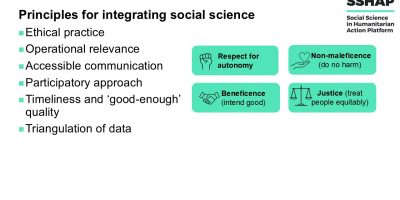Spotlights
Mpox outbreak
Despite the recent determination of the WHO Director-General that the mpox multicounty outbreak no longer constitutes a public health emergency of international concern (PHEIC), mpox continues to circulate, especially in Africa where over 90% of cases are reported and where it remains a Public Health Emergency of Continental Security (PHECS).
20 selected resources
Sudan crisis
Articles, blogs and news on the dynamics underpinning recent events.
32 selected resources
Social dynamics of vaccine deployment
A collection of resources to inform considerations concerning critical social dynamics, including trust in institutions, community norms, and the spread of information (including misinformation), and their influence on vaccine uptake and acceptance.
31 selected resources
Search
More about SSHAP
We provide social science evidence on demand, capacity-building and networking spaces on emergencies that relate to health, conflict and the environment.
Key resources
1
Report
Meeting report: The impact of global aid funding cuts on people and programmes in South Sudan
Report of a roundtable with government actors, academics, development partners and journalists in South Sudan on the sweeping impacts on people and programmes of aid cuts and multiple, intersecting crises.
2
Briefing
Key considerations: Home-based care for mpox in Central and East Africa
This brief outlines key considerations on health system requirements for safe and inclusive home-based care for mpox.
3
Briefing
Mpox response in urban informal settlements
This brief highlights key issues and good practices that can be carried into the design and delivery of mpox response activities in urban informal settlements.
4
Briefing
Introducing experimental vaccines during health emergencies
This brief provides an overview of the experimental stages of vaccine development during a disease outbreak and highlights key considerations at each stage from a social science perspective.
5
Briefing
Supporting the mpox response for people with diverse sexual orientation, gender identity and/or gender expression in contexts where their rights are restricted
This brief provides a socio-behavioural analysis of the vulnerabilities, risks and operational key considerations for working with people with diverse sexual orientation, gender identity and/or expression in the mpox response.
6
Briefing
Mpox in the Busia-Malaba border region linking Uganda and Kenya
This brief summarises how mpox is perceived and managed in the Busia-Malaba border region that links eastern Uganda and western Kenya.
News and blogs

news
SSHAP has published a collection of short videos featuring methods, tools and thinking to aid the use of social science approaches in humanitarian and health emergency response practice. This free collection is for researchers, humanitarian practitioners or others interested in learning and incorporating social science analysis in their work.

blog
In the wake of nearly a decade of protracted conflict in Yemen, Mamoon Al-Absi, a former SSHAP Fellow, considers the uncomfortable intersection between international frameworks and local realities and asks: can localised governance and community-driven strategies truly build resilience in fragile, urban environments?

blog
Humanitarian crises are growing in complexity and impact. According to the United Nations Office for the Coordination of Humanitarian Affairs nearly 300 million people globally needed humanitarian assistance and protection in 2024. In a world plagued by natural disasters, violent conflict, and public health emergencies, humanitarian service delivery is critical.
Sign up to our newsletter
Subscribe to receive quarterly updates with our publications, blogs, infographics and relevant resources from our collaborators. During emergencies we may send more frequent updates.






